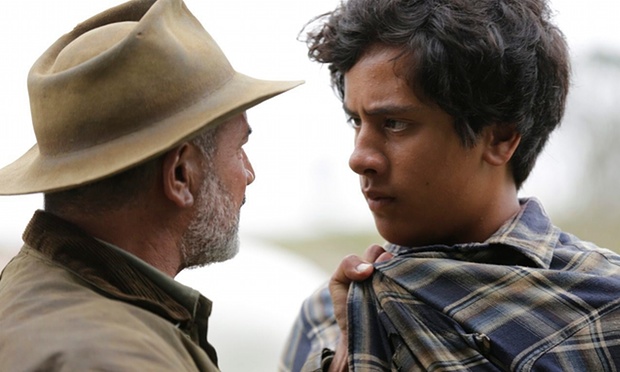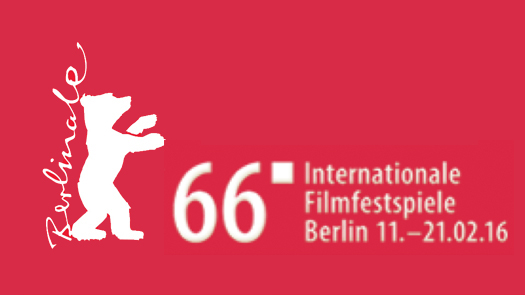Berlin Film Festival 2016: Mahana (The Patriarch): An Interview with Lee Tamahori and his cast

Mahana received a standing ovation after its premiere at the 2016 Berlin International Film Festival, and it will be interesting to see how successful this drama about sheep-shearing and rivalry in 1960s New Zealand will be when it’s officially released. Director Lee Tamahori made his name with the much-lauded Once Were Warriors (1994) and then made the jump to Hollywood with Along Came a Spider (2003) and Pierce Brosnan’s final martini as James Bond in Die Another Day (2004). Mahana was the project that tempted him back to filmmaking in his native New Zealand, and we sat down with Lee and his cast: Temuera Morrison (as Tamihana Mahana), Nancy Brunning (as Tamihana’s wife, Ramona), and newcomer Akuhata Keefe (who plays their grandson Simeon, and who had to endure a nine-hour bus ride to Auckland Airport before he could fly to Berlin!).
For a fairly dramatic film, there are some nice comedic touches. Was this difficult to achieve?
Lee Tamahori: It’s not a comedy, but there are funny moments in the film. It’s certainly not a tragedy. It’s the coming-of-age story of a young man acquiring manhood, and that’s essentially what the story is. The background is both dramatic and comedic, but we had to be careful with that. The comedy is not overt, and I was watching it last night and thought “f**k, they’re laughing at the wrong moments”. I am never quite sure if it the balance has been struck. You just need to edit it, hope like hell, and then put it in front of an audience. Once I’ve cut a film and finished it, I never go back and touch it. I like finishing it off and then living with the decisions I’ve made.
And do you regret any of those decisions?
LT: Yeah, I have some regrets, but they’re very few and far between. I look back at some things and wish that I’d done it differently. Something I’ve noticed about younger filmmakers, and I’ve been around a few of them, is that they obsess about everything too much. Perfection in the shot, perfection in the performance, perfection in everything. We don’t have the time or money to spend on smaller stuff. We can’t be perfectionists. You’ve got to make effective decisions. You’ve got to make them when you’re shooting, you’ve got to make them in the editing room, and grading, and scoring, and everything and then you live with it. And I’ve regretted some of them for sure, but never as many times as I’ve been happy with the decisions I’ve made.
Did watching the film evoke a feeling of nostalgia, of seeing a New Zealand of the past?
Temuera Morrison: It took me back to my childhood, and it was like going into a dream world. Those green undulating, rolling hills. All that. And the sheep! I have beautiful childhood memories of riding horse with my grandfather and I just loved to watch him ride because he had a real style about him. He looked so cool, and it’s like I was Tonto and he was Kemosabe. For me, when I was watching the movie, ah man – the clothes! My grandfather used to wear those exact same sorts of clothes. Just the texture, that prickly material.
Akuhata Keefe: And my clothes from the shearing scenes were really prickly and itchy, like that singlet. When I was doing a shearing scene I was more worried about the itchiness of my singlet than the sheep.
Lee, there are a lot of references to western movies in Mahana. Are you a fan of the genre?
LT: Oh yeah, westerns are my favourite genre. Mahana is shot like a western, specifically a 1950s American western. I’ve always loved the western because it’s like a simple morality play, laid out in a way that a child who didn’t know the difference between right and wrong could watch it, and see exactly who is right and who is wrong. New Zealand Maori in the 1950s loved US westerns. They loved to go and watch them because they were all farmers, and rode horses, and loved to wear western hats and pretend they were cowboys. I wanted to get a touch of that across in this film. It’s not a western but it evokes that feeling.
How do you think the film will be received when it opens in New Zealand?
LT: That’s the thing, and that’s the thing I’m most interested in actually. It’s great to have its opening night at a big festival for a bunch of people who love film, but it’s a different thing for a paying audience in New Zealand, because New Zealanders will be the harshest critics of this film.
Nancy, you play a woman who is decades older than you by using little more than a grey wig and your attitude. How difficult was that to achieve?
Nancy Brunning: I know women like that. My mother, her sisters, my grandmother. They were incredible women, and the way that they raised us was with everyone together, and you make decisions together. Everyone lived in a very communal way, and it was just that sense of sharing. My mother in particular was just carrying on in the same way as she was raised, and her village sensibilities came through when she was raising us, and I always remembered that. I figured that would be the same for Ramona, since they lived in a rural community and you have to survive in that kind of way. You can’t just go down to the shop and buy some butter – you have to milk the cow first. Just going back to those memories, that quiet strength that a lot of those women had, and how they taught you by doing. If they were actually telling you to do something, it’s probably because you did something wrong, or you were a belligerent child. Everything about Ramona I drew from my aunties and the women in my family, and it’s interesting talking to young people who never experienced someone from that era. They don’t understand what makes them tick, and I think it’s a really sad thing, so I like that Ramona is out there now.
Akuhata, this is your first film, and your first onscreen kiss. How many takes were needed to film that?
AK: Like six takes. It was awkward, not between us, but because of the camera. The camera is right there, and the crowd is over there, a big crowd behind the camera as well, all laughing. And Lee was like “Wait… Wait… Now!”. We did heaps of takes and angles, one from over here, one from over there, and over here again, and then over there again. I reckon I appreciate films more after doing one, like how long it takes to do one scene. All the different angles. It feels like it’s a whole week of shooting and you get five minutes of film.
Lee, Die Another Day was loved by many James Bond aficionados, but it’s also had its share of detractors. How did you react to some of that negative feedback?
I knew that would happen with that film because I made it as a love affair for the James Bond fan club, and people – the film purists, the people who want film to advance to higher levels – didn’t like that at all. The new James Bond formula follows the Bourne style of things and it’s a fine way to go, because it needed a revamp. But I always wanted to make the death-laser-from-space James Bond film. I wanted to make the ridiculous James Bond film. The villain in the lair and all that, and even though it was way out of date, I knew what I was doing and I said to the filmmakers “Look if we’re going to do this for a Bond anniversary, let’s put a whole lot of homages to every other James Bond film, for those people who know what they are.” There are maybe 15 of these homages in the film, like Halle Berry coming out of the water. Some people really objected to that and disliked it, and I knew they would. A lot of critics thought that was rubbish. Fans of the genre really liked it. The invisible car was ridiculous of course.
Oliver Johnston
Read our review of Mahana here.
Read more of our reviews and interviews from the festival here.
For further information about Berlin Film Festival 2016 visit here.
Watch the trailer for Mahana here:

























Facebook
Twitter
Instagram
YouTube
RSS